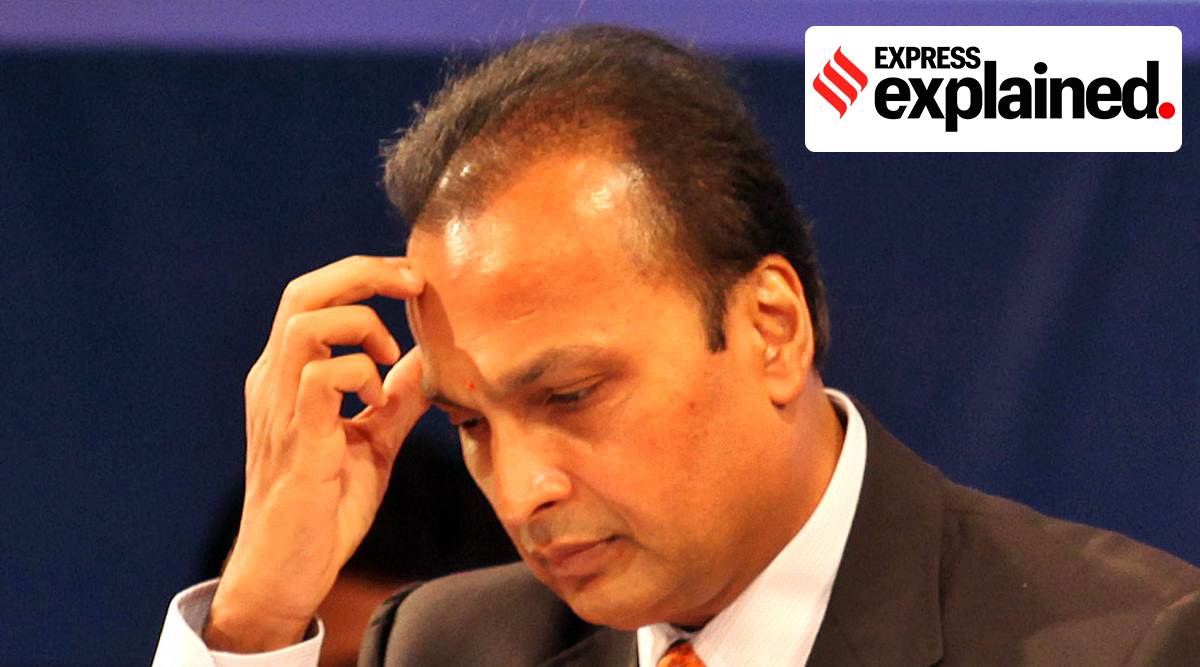
[ad_1]
, Edited by Explained Desk | New Delhi |
Updated: August 21, 2020 8:13:15 pm
 Anil Ambani during a media interaction in Mumbai. File/Express Photo by Ganesh Shirsekar
Anil Ambani during a media interaction in Mumbai. File/Express Photo by Ganesh Shirsekar
The Mumbai bench of the National Company Law Tribunal (NCLT) has allowed the initiation of insolvency proceedings against Anil Ambani after two companies promoted by him failed to pay dues on Rs 1,200 crore that they had borrowed from State Bank of India (SBI).
The insolvency process will be initiated against Ambani as he had given personal guarantee against the loans provided to his firms.
Is this a case of personal insolvency against Anil Ambani?

The case is significant as it is one of the first cases of insolvency against a major business group head.
In 2015, Anil Ambani-promoted Reliance Communications Limited (RCom) and Reliance Infratel Limited (RITL) approached the Project Finance Strategic Business Unit of the SBI, and sought two loans of Rs 565 crore, and Rs 635 crore respectively. Anil Ambani gave a personal guarantee equivalent to the loan amount of Rs 1,200, which was disbursed in 2016.
On failure to repay the credit extended to RCom and RITL, State Bank invoked the personal guarantee given by Ambani. However, before the same could be enforced, both his companies were admitted into insolvency on an application moved by Ericsson India Private Limited.
Since the companies were admitted into insolvency, all the loans and assets of the company as well as promoters were placed in a moratorium. The Insolvency and Bankruptcy Code (IBC) then did not have provisions for personal insolvency as well. The rules for initiation of personal insolvency were notified last year in December.
📣 Express Explained is now on Telegram. Click here to join our channel (@ieexplained) and stay updated with the latest
What is the process for personal insolvency?
As the NCLT has allowed the appointment of an interim resolution professional (IRP) in the matter, SBI will now approach the IRP will a list of the assets provided by Ambani as a personal guarantee when his companies had sought the loan.
In the case of banks providing loans against personal guarantee, the guarantor has to furnish a list of assets whose value is equivalent to the total amount of loan being given. In case of failure to pay these assets, these guarantees can be invoked.
For example, if Ambani’s assets are worth Rs 2,000 crore and the bank’s claims are worth Rs 1,200 crore, there is a possibility that the bank can recover all its dues. However, if Ambani claims to have personal assets less than the value of the personal guarantee given by him, the banks will have to make do with what they get.
“In the case of personal guarantees being invoked, the banks can claim rights only over the personal assets. Only those assets get attached. The bank can not claim rights over the assets of his wife or children,” Saurav Kumar, partner at IndusLaw said.
Explained Ideas: How India can boost employment in the next couple of years
What happens to Anil Ambani after the insolvency process is over?
Like corporate insolvency processes, a businessperson is free to start with a clean slate after a personal insolvency case against them is over. The lenders will be eligible to recover their dues only from the collateral deposited or personal assets belonging to that person. However, any or all assets mentioned in the list provided at the time of sanctioning of the loan, even if transferred to someone else, can also be attached and sold.
Ambani will be free to run other businesses which are not under insolvency, or which are able to service their debts and obligations on time.
📣 The Indian Express is now on Telegram. Click here to join our channel (@indianexpress) and stay updated with the latest headlines
For all the latest Explained News, download Indian Express App.
© The Indian Express (P) Ltd
[ad_2]
Source link